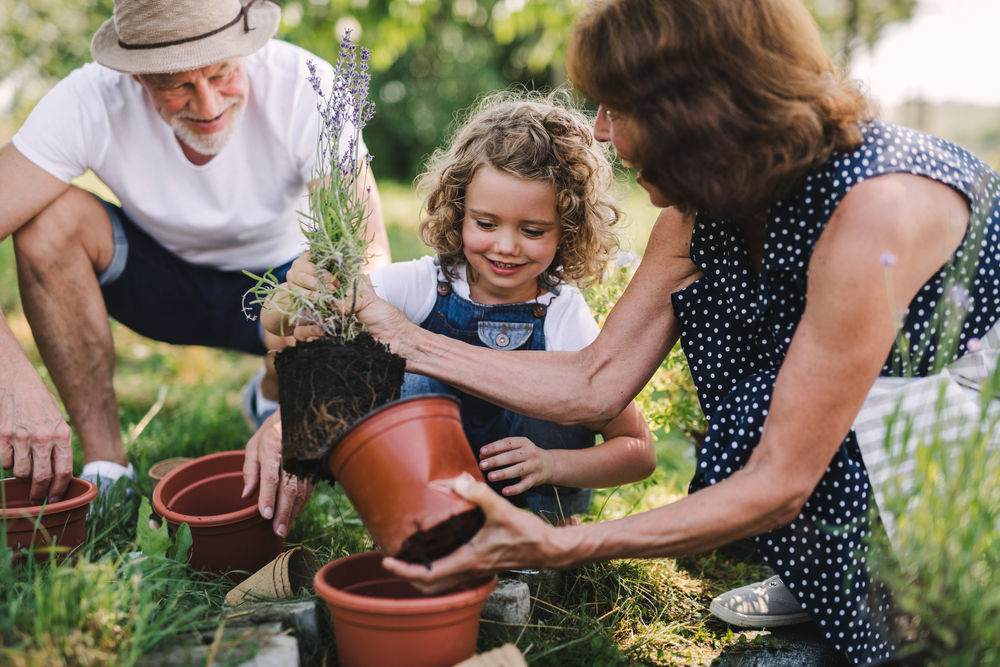“It takes a village to raise a child” is a famous proverb that some families live by. “The village” refers to a community of people who teach and care for the children in different ways. Parenting can be exhausting and overwhelming, especially when something goes wrong. One kid has the flu, the baby has colic, the grocery list is novel-length, the car is breaking down, and the sink is leaking again. “The village” often comes in the form of supportive friends and family members, especially grandparents, who can help in stressful situations. So what happens when the grandparents are uninvolved?
Absent boomer grandparents are “completely unbothered”

One TikTok from a millennial creator particularly captured the struggle of absent boomer grandparents.“We’ve gone from a generation of kids that spent every weekend at our grandparents house,” writes Brittnie over footage of her children, “to parents with kids spending every moment with our tiny humans while our family is nowhere to be seen. Completely unbothered. We are our own village. Such a difference between us.”
Read More: ‘Grandma’ And ‘Grandpa’ are Out: Here’s What What Kids Are Calling Their Grandparents
There’s no village

Many of her viewers related similar positions. “Facts!” one wrote. “I grew up spending all summers with my grandparents and now my parents are nowhere to be found.” Another reiterated: “No village. No help. Just me and my husband. No one is interested.” Some pointed out how their own parents never did much parenting, let alone grandparenting. As one said, “My grandparents raised me so I wouldn’t even expect my parents to know how to watch my child.”
Criticism of the “absent boomer grandparent” claim

Several comments expressed the sentiment that parents, not the grandparents, are the ones responsible for child-rearing. “Yup, finally we are raising our own kids,” one said. “It’s the way it should be though.” But Brittnie clarified, “I would just like my parents to pretend my kids exist. Not just on holidays where I make all the plans for us to get together.” Others reinforced the wish their parents would seem more interested in their kids.
Read More: 16 Things Grandparents Should Stop Saying to Their Grandchildren
Grandparents then and now

However, one comment pointed out how different life is for grandparents now. “My grandma could afford to be a stay at home mom,” they wrote. “My mom is only 50 and still works over 40 hours a week. Makes a big difference in them taking [the kids].” Gerontologist Athena Chan agrees that the “absent boomer grandparent” pattern is not necessarily by choice, and it’s unfair to compare them to older generations who could’ve been retired or in a single-income home.
Still working full-time

“According to the Grandparents Today National Survey by AARP, the youngest grandparent today is around 38 years old, and the average age for becoming a first-time grandparent is 50,” said Chan to Huffington Post. “Many grandparents today are still in their prime working years.” Additionally, the typical retirement age is older now, with the U.S. average in 2024 being 64 for men and 62 for women. In 1994, men tended to retire at 61 and women at 59, according to research from Boston College. “This shift challenges the traditional image of grandparents as retired figures with abundant free time,” said Chan.
Read More: Grandparents May Be Causing Kids Harm With Their Outdated Parenting Beliefs
Busy schedules

Even the most loving retired grandparents can be too busy for frequent visits with grandchildren. “Many of them have been working for decades, so they’re programmed to be busy,” says author and social psychologist Susan Newman, Ph.D, to Parents. “This is a health-obsessed group too, so they work out a lot, and they’re social. They volunteer, go on trips, have book clubs.” Alternatively, their time and energy may be eaten up by medical issues they are uncomfortable revealing to their adult children.
Grandparents, not babysitters

Of course, it’s important to evaluate what parents expect of grandparents, since they may not be on the same page. Open communication about these expectations can smoothe over resentment and untangle future conflicts. For instance, grandparents may be feeling taken advantage of since their kids seem to expect them to babysit at a moment’s notice. They may feel hurt if their kids were distant before the grandchildren arrived; now, they suddenly want to reunite.
Read More: 13 Household Chores Your Grandparents Did That Would Never Want to Do Today
Don’t blame the boomers

Many grandparents today are still involved with their grandkids’ lives — or want to be — but circumstances have changed how they contribute. That’s not to say that there aren’t absent boomer grandparents who don’t make an effort with their grandchildren; there definitely are. But uninvolved grandparents existed in every generation, as did the doting, overindulging ones. Fortunately, parents can compromise with uninvolved grandparents, who may be more willing to spend time with grandparents over the phone, at a fun location like a theater or mall, or by teaching them about their favorite hobbies.
Creating “a village”

Unfortunately, some families don’t have grandparents, whether by choice or circumstance, but they could still have a village. This simply refers to a community that contributes to childrearing, which could be in the form of friends, carpools, sports coaches, the parents of your children’s friends, neighbors, or extended family members. Just remember, having a village means becoming a part of someone else’s village in return. And keep in mind, help could also come in the form of paid services like nannies, sitters, house cleaners, or grocery deliveries.
Read More: 50+ Home Hacks Our Great Grandparents Used That Are Just As Brilliant Today

